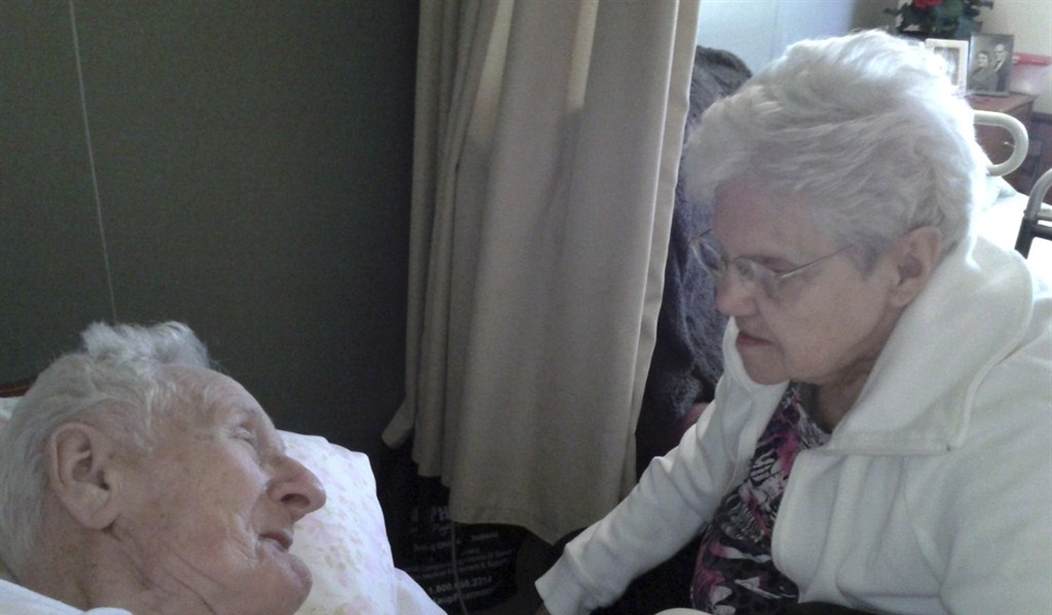That’s not a bad thing in itself, of course. Sometimes elderly folks need skilled care beyond what a family can offer. Alzheimer’s patients often require round the clock supervision that’s impractical for busy families, where children’s needs and professional commitments consume more of the day. And some older people desire the companionship and planned activities that are available in assisted living or transitional facilities.
Advertisement
Still, there’s a personal cost to this separation between generations. Across the nation, children in more than a million families miss out on day-to-day interactions with their grandparents. They lose the opportunities to relish the tales of what mom and dad were like as children or to hear personal memories of momentous historical events. What do Grandma and Grandpa recall about the day President John F. Kennedy was shot, or D-Day, or what life was like before the technological revolution?
Some of these opportunities can be recaptured on weekends or family holidays, certainly. But is that what really happens?
All too often, when grandma or grandpa move into a care facility, their memories and experiences are boxed up along with their clothes, never to be unpacked again. Some families move the ‘old folks’ into assisted care and family interaction drops radically. The grandkids are too busy during the day, while the loyal son or daughter manages a quick visit on the way home from work on Fridays. Less conscientious family members heave a sigh of relief that grandma is someone else’s responsibility, and reduce their involvement to paying assigned bills or sending a card or flowers on appropriate occasions. Perhaps they even call once in awhile (unless it becomes too frustrating to deal with hard-of-hearing or soft-spoken old people.)
Our fast-moving society has no time for the slow-pace of elderly folks. As a result, we never glean their wisdom, never hear their rich perspectives and never cherish their attentive affection. Adults whose parents are no longer living consider themselves lucky to be “off the hook,” and forget that our elderly deserve honor and respect. They are a national treasure, too often lost.
Recommended
Advertisement
How to Save Your Family: Open your arms and embrace the elderly.
What can you do?
First, search your heart. If your parents or grandparents reside in a care facility—whether nearby or far away—ask yourself if you’ve really done right by them. Do they feel loved and cared for? Do you take an interest in them and give “time,” the most valuable gift of all? Would you want to be treated the way you treat your elderly relatives? (Consider the impact of your example on your own children. They are learning from you!)
If not, then take action. Make changes in your daily, weekly, or monthly routine so that you include them in the rhythm of daily life. Seek the help of facility staff to arrange a Skype visit or Face time on the computer. Anything’s better than silence or neglectful absence.
If your grandparents are no longer alive, live farther away, or are still vigorous and independent, consider reaching out to an “adoptive” grandparent. Nursing homes are filled with lonely people. Some residents don’t have family members nearby or have family members who surface only for obligatory holiday visits. These precious men and women have stories to tell and wisdom to share, if only some one will listen. Nursing homes are delighted when proxy families dote on their residents. Be upfront about what you can do. Some families visit each week, once or twice a month, or whenever their schedules permit. Others will swing by and take their “adoptee” for errands, a meal out, or to recreation.
Advertisement
Adoption is an option for all ages, and one I encourage you to take advantage of. You won’t regret it!
Until recently, there were very few nursing homes in China. The strongly Confucian culture considers it shameful not to care for your family members yourself. Perhaps that option is more possible than we think. Having a parent or grandparent move into your home is never easy—it means an extra schedule to juggle, mouth to feed, personality to factor in, and soul to care for. However, it can also be a great blessing and a chance to show our children what it means to truly care for family members.

























Join the conversation as a VIP Member